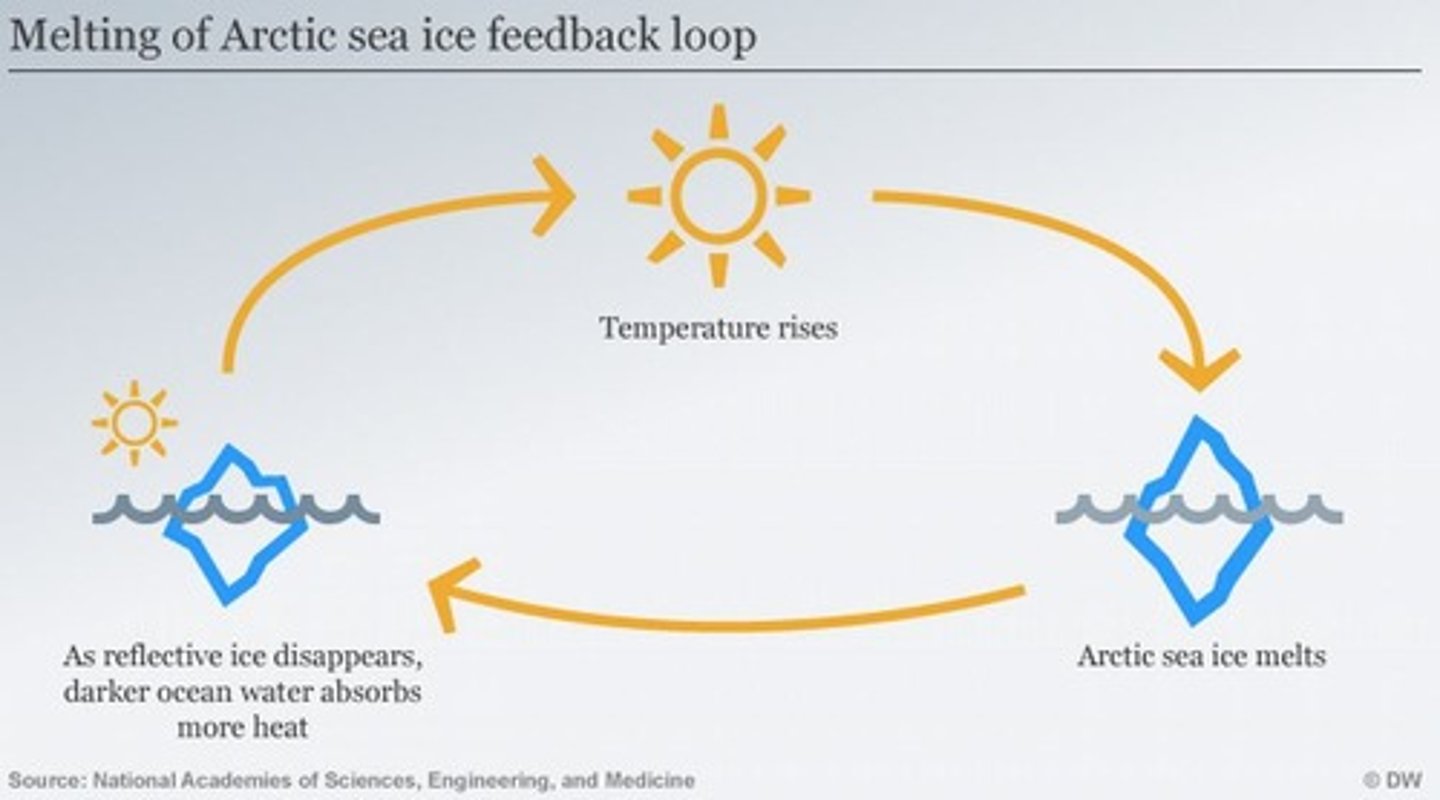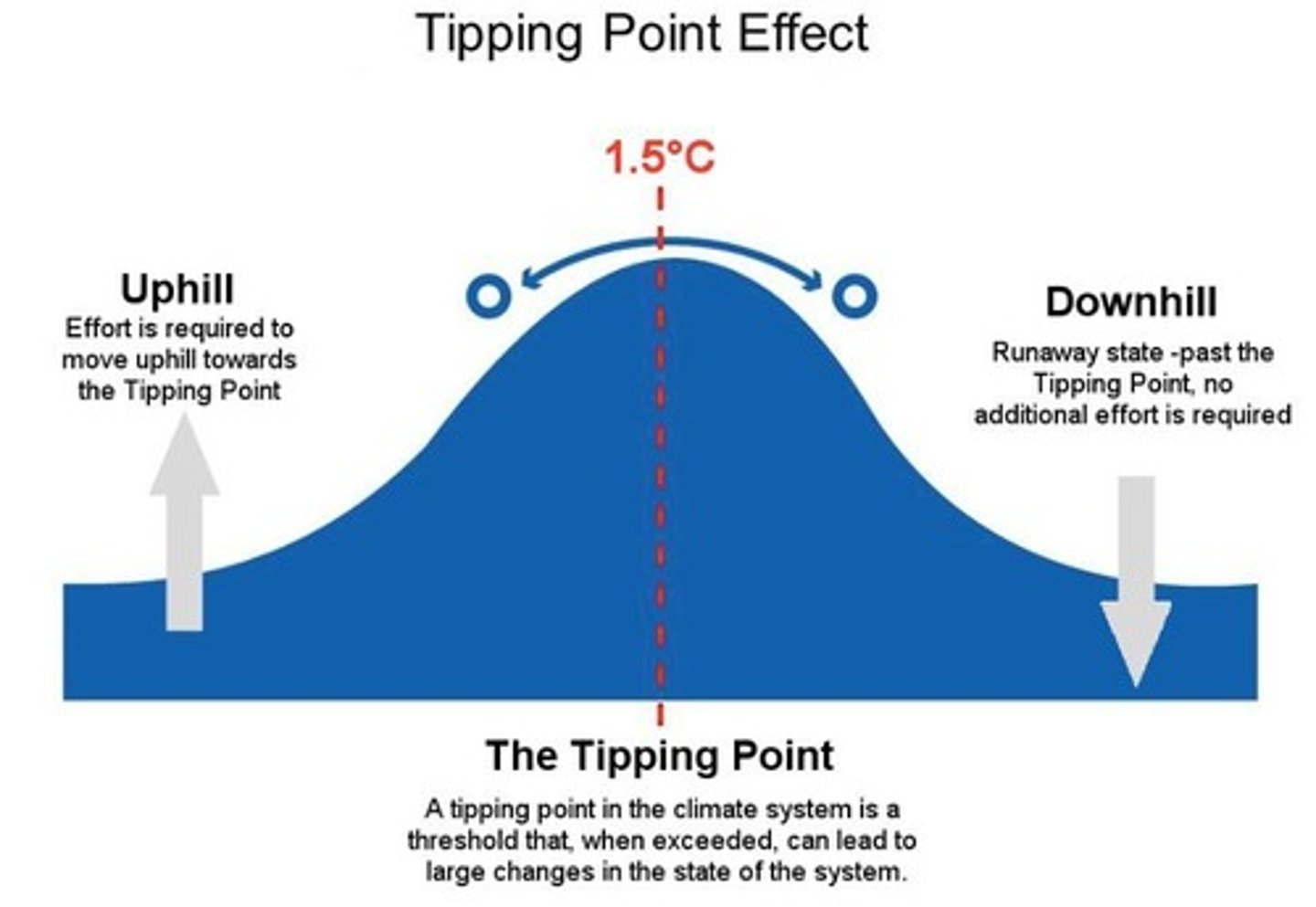Week 4: Environmental Challenges and Climate Change
1/25
There's no tags or description
Looks like no tags are added yet.
Name | Mastery | Learn | Test | Matching | Spaced | Call with Kai |
|---|
No study sessions yet.
26 Terms
What are the key themes of environmental challenges?
Scale of the crisis, emotional and ethical dimensions, and politics of responsibility.
What is the Anthropocene?
The proposed current geological epoch in which human activity is the dominant influence on climate and the environment.
What characterizes the Holocene Epoch?
It is a relatively stable period lasting from approximately 11,700 years ago to the present, allowing for the development of human civilizations.
What are key indicators of environmental change?
Carbon emissions, biodiversity loss, deforestation, ocean acidification, greenhouse gases, extinction rates, and plastic pollution.
What is the difference between 'climate crisis' and 'climate change'?
The climate crisis emphasizes the urgency, speed, and scale of transformations such as rising temperatures and extreme weather.
What has been the temperature increase since the late 19th century?
Temperatures have increased by about 1.1 degrees Celsius.
What are feedback loops in the context of climate change?
Processes like thawing permafrost that release methane, accelerating warming further.

What are tipping points in climate science?
Thresholds beyond which certain changes become irreversible, such as the potential dieback of the Amazon rainforest.

What impacts does the climate crisis have on biodiversity?
Coral reefs are bleaching, species are migrating or vanishing, and biodiversity is declining rapidly.
How does climate change threaten food security?
Changing rainfall patterns, soil degradation, and extreme weather threaten agricultural stability.
What are some health impacts associated with climate change?
Heat-related illnesses, the spread of vector-borne diseases, and respiratory problems from wildfire smoke.
What is environmental justice?
The fair treatment and involvement of all people in environmental policymaking, regardless of race, class, or geography.
How does the climate crisis reflect inequalities?
Countries and communities least responsible for carbon emissions, often in the Global South, suffer the most.
What psychological effects are associated with ecological despair?
Responses such as grief, anxiety, and paralysis due to environmental degradation.
What is denialism in the context of climate change?
The active rejection of scientific evidence for political, economic, or ideological reasons, often driven by vested interests.
Who bears responsibility for addressing climate change?
State, corporations, and individuals all share responsibility.
What is the role of individual agency in climate action?
Individuals can act individually, collectively, and politically to address climate issues.
What role does activism play in climate change awareness?
Activism, such as Fridays for Future and Extinction Rebellion, raises awareness and promotes action.
What are 'trigger' warnings in the context of environmental discussions?
Content that may be distressing, prompting individuals to be mindful of potential emotional responses.
What is the purpose of the Centre for Accessible Learning's note-taking program?
To support students who cannot take comprehensive notes due to disabilities, providing equity of access to lecture material.
What does Franzen suggest about the inevitability of climate collapse?
He argues that admitting climate collapse is coming is necessary for preparation, highlighting risks and benefits.
What is 'problem-solving optimism' according to Franzen?
The belief that hope can motivate action, but it may also become a form of denial.
How does Franzen link carbon emissions and democratic legitimacy?
He suggests that the struggle to rein in emissions and restore democracy may be the same struggle.
What does Franzen mean by 'shrinking the scale' of commitments?
Focusing on local communities and values as a form of resistance in the face of global crises.
What emotional responses does Franzen's essay evoke about climate change?
Reactions may include anger, hopelessness, motivation, or conflict, revealing the role of emotion in climate response.
What does moral clarity look like in an age of climate collapse?
It involves identifying values that should guide actions in the face of environmental degradation.